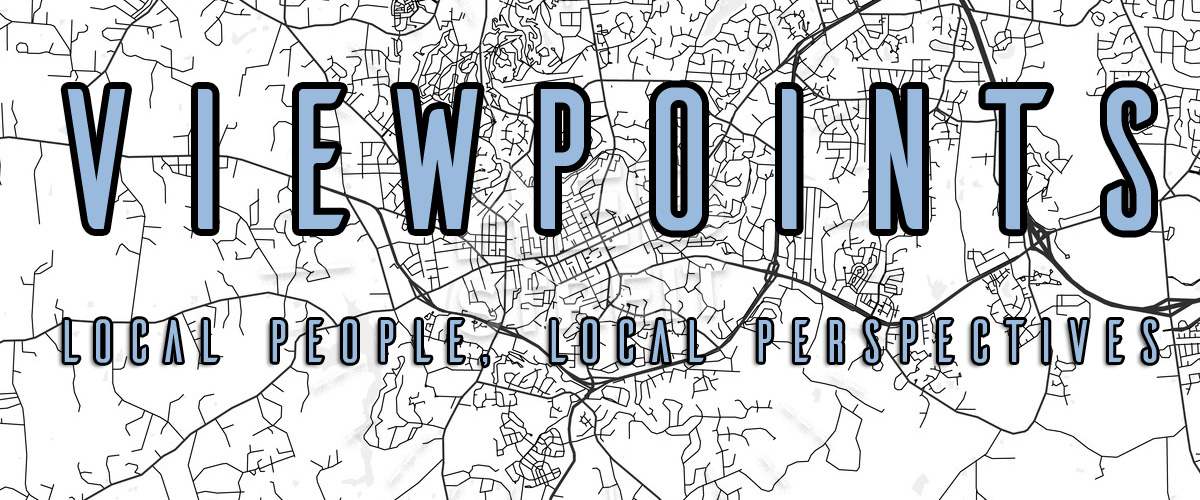
The Elitist Attitude of Carrboro
A perspective from Enrique Latoni
I, like many Americans, watched the final Presidential debate. As I sat on my couch trying to listen in on what each candidate had to say while my dad enthusiastically yelled at the TV as if he was at some concert, one particular issue stuck out to me: minimum wage.
I asked myself what the point of debating minimum wage policies was when they could instead be discussing different strategies to get more people to a fair living wage? Americans would benefit much more from policies that focused on getting more people to fair living wages rather than those dealing with the minimum wage.
The difference between minimum wage and fair living wage is that whereas minimum wages are set arbitrarily by law and may last for years, fair living wages are determined by changes in the average cost of living. Similarly, people earning the federal minimum wage right now could be living below the poverty line (depending on location and family size) and struggling to meet everyday costs. On the contrary, fair living wages are defined as the income workers require to meet basic needs while still having some discretionary income left.
One of the main problems with the minimum wage is that, until a new one is implemented (which no administration can guarantee), its real value (inflation-adjusted) will only decrease with time. To put it into perspective, the real value of the federal minimum wage has gone down by over 17% since it was last raised in 2009 (to $7.25). Workers would now be earning around $8.86 an hour had the rate kept up, significantly higher than the current federal level. However, to most citizens, even earning $8.86 an hour today would not be considered a living wage.
Politicians could meaningfully impact many more workers by focusing on policies that are able to effectively get people to a fair living wage after accounting for their location. In 2018, it was reported that only 2% of all hourly paid workers earned at or below the federal minimum wage. At the same time, 11.8% of the population lived below poverty level. This difference represents over 30 million workers that could potentially benefit more from adequate living wage policies.
Data shows that paying workers a living wage leads to improved worker health, morale, and quality of service. At the same time, it helps create jobs while lowering turnover rates, thus potentially saving small businesses’ money. Living wages also help national economies grow since consumer demand for goods and services increases as workers have more disposable income. That said, adequate living wage policies would probably benefit you and me more than minimum wage policies.
Although there are different potential solutions to getting people to a fair living wage, one that would specifically tailor to individual workers’ needs would be to fund, and create, organizations like Helius in counties throughout the nation. Helius is a nonprofit organization in Durham, NC, that helps necessity-driven entrepreneurs scale their businesses and reach their goal of having a fair living wage by the end of their program. They have been very successful in getting different entrepreneurs to this goal by adjusting their scaling strategies to fit the needs of each individual entrepreneur.
Working with Helius this past semester taught me that by leveraging each person’s individual talents, anyone has the ability to earn a fair living wage. The entrepreneurs I worked with were not only better off financially, but also psychologically and emotionally. You could feel their sense of accomplishment.
That said, yes – though raising the minimum wage might benefit some people short-term, and could even count as a living wage for a while, this strategy is not as dependable, sustainable, nor impactful as focusing on getting more people to a fair living wage. Like most economic policies, many different factors may affect the success of living wage policies. However, if carried out correctly, there is no limit to the positive impact these policies could have.
So next time you hear candidates talking about the minimum wage, ask yourself: which of them has a better strategy to get more people to a fair living wage? That will reveal much more about who you should vote for.
Enrique Latoni is currently a senior at Duke University majoring in Public Policy with a minor in Economics and is originally from San Juan, Puerto Rico.
Chapelboro.com does not charge subscription fees. You can support local journalism and our mission to serve the community. Contribute today – every single dollar matters.











